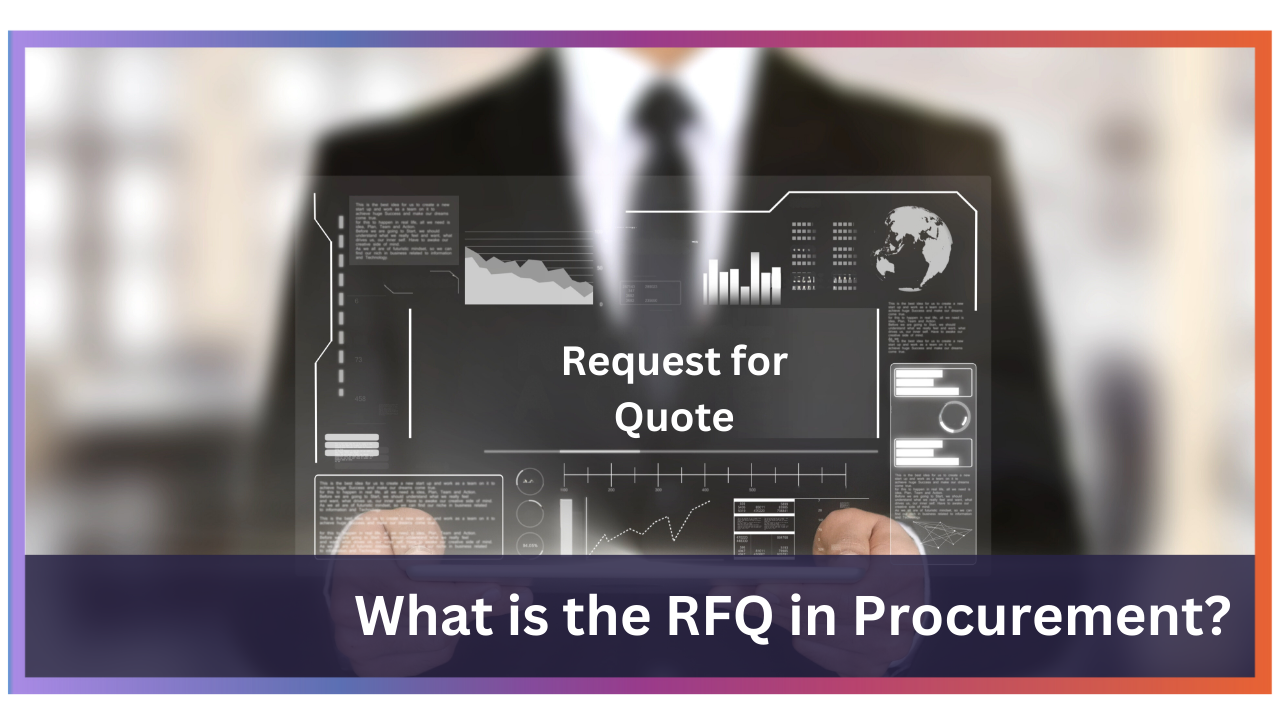What is the RFQ (Request for Quotation) in Procurement?
Posted On: Jan 09, 2024
Generally, in a business when a product is clearly defined and you also have identified potential vendors who would be able to service the order, it's time to float an RFQ. Though it is one of the significant steps of a procurement process, RFQ (Request for quotation) could prove itself to be a very complex process to manage, especially if you don't have technological assistance. This blog will help you understand the RFQ and simplify the overall process to make the best out of the process.
Index
- What is Procurement?
- What is RFQ?
- Importance of RFQs
- Benefits of RFQ in Procurement
- How does Partner Portal help in RFQ process?
What is Procurement?
Procurement is a process of sourcing goods or services from potential vendors or suppliers to complete an organization’s needs. The goal of the process is to seek the needed resources at the right quality, quantity, and price to support an organization's objectives. Efficient procurement practices enhance the organization's overall performance and competitiveness.
What is RFQ?
RFQ or Request for Quotation or Request for Quotes is a process, wherein the organization recognizes its standard demands and issues the request, as a formal invitation to their preferred vendors for a quote.
While technically, the first step in the RFQ process is preparation of RFQ document, the pre work starts much earlier than this. It starts with the procurement team recognizing Standard demands, usually which are ordered much more frequently, or which has longer serviced tenure. Usually, RFQ is not floated for random vendor and is shared with specifically identified vendors.
At this state the procurement team starts building an RFQ document. The document includes the complete details of the required products and services with the quantity needed including detailed specifications, quantities etc. The team then asks the vendors to submit the price quotes and bids. Based on the request, vendors submit quotes providing complete information of pricing and due dates. Then the procurement team compares various offerings from potential vendors before finalizing the deal.
The evaluation process enables the organization to identify the most suitable vendor based on pricing, products quality, delivery capabilities, and value-added services. RFQ also serves as a starting step of negotiations with vendors. Through the process, the team secures a fine-tune agreement between the vendors and organization aiming for a mutually beneficial outcome.

Importance of RFQs
RFQs incorporate fundamental importance in the procurement process and facilitate efficient and informed decision-making process. Raising an RFQ allows the procurement to compare the prices and quality offered by various vendors for the best deal. Even vendors get an opportunity to explore new business. The process also allows the organization to connect with multiple new potential vendors/suppliers. This expands their contacts with vendors for present or future business requirements.
Benefits of RFQ in Procurement
In the procurement process, RFQs play a vital role in the purchasing process and enable the organization to make the right decision. Here are some of the additional benefits of RFQ process in the procurement:
- The RFQ process reduces the time spent searching for a supplier, as the organization can release the request only to its selected vendors.
- The process includes a set of vendors who offer the required products or services a company needs. This means that there are less chances of receiving incorrect quotes which increases possibilities of getting the ideal vendor at the best possible price.
- Since RFQ drives the organization to check all the available offers, it assists them in making better choices about vendors and purchases at good prices. Hence, it also enhances the decision-making process.
- The RFQ process also brings transparency and visibility that promotes accountability and adherence to procurement regulations.
How does Partner Portal help in RFQ process?
Partner Portal, a cloud-based vendor management system, allows the organization to automate its vendor management process and streamlines the procure-to-pay process. The platform can automate the procurement process from vendor onboarding and generating RFQs, POs, and invoices to tracking shipments and billing in real-time.
Partner Portal assists the organization in managing the RFQ process in the following way:
- It enables them to create, process, authorize, and track the requests within the organization.
- It generates requests for quotations by just selecting products and vendors on the portal.
- It also allows dynamic quote submission, negotiation, and seamless quotation-to-purchase order transition.
- Its advanced analytics enables the organization to select the top vendors with the best value.
Partner Portal automates the process for vendors as well. Once the vendors receive the request, the system automatically populates the pricing based on the committed quantity. Vendors can send the submitted quote to the organization and open an option to negotiate the deal.
Partner Portal centralizes all the processes in a single platform and allows the organization to track and analyze all the vendor quotations before making a final decision. Once they get the final pricing, the platform enables them to convert the RFQs into POs and get the best deal.
FAQs:
What is RFQ?
A request for quotation is a formal invitation to vendors that asks them to submit quotes on requested goods or services.
What is a vendor quotation?
A vendor quotation is a pricing submitted by the vendors in response to an RFQ. It includes the products or services being supplied and their pricing, which companies use to compare bids from different vendors and select the most suitable one.
How are RFQs and Vendor Quotations evaluated?
RFQs and Vendor Quotations are evaluated based on factors such as price, quality of the products or service, delivery time, payment terms, etc. The process allows the organization to select the suitable vendor that offers the best deal.